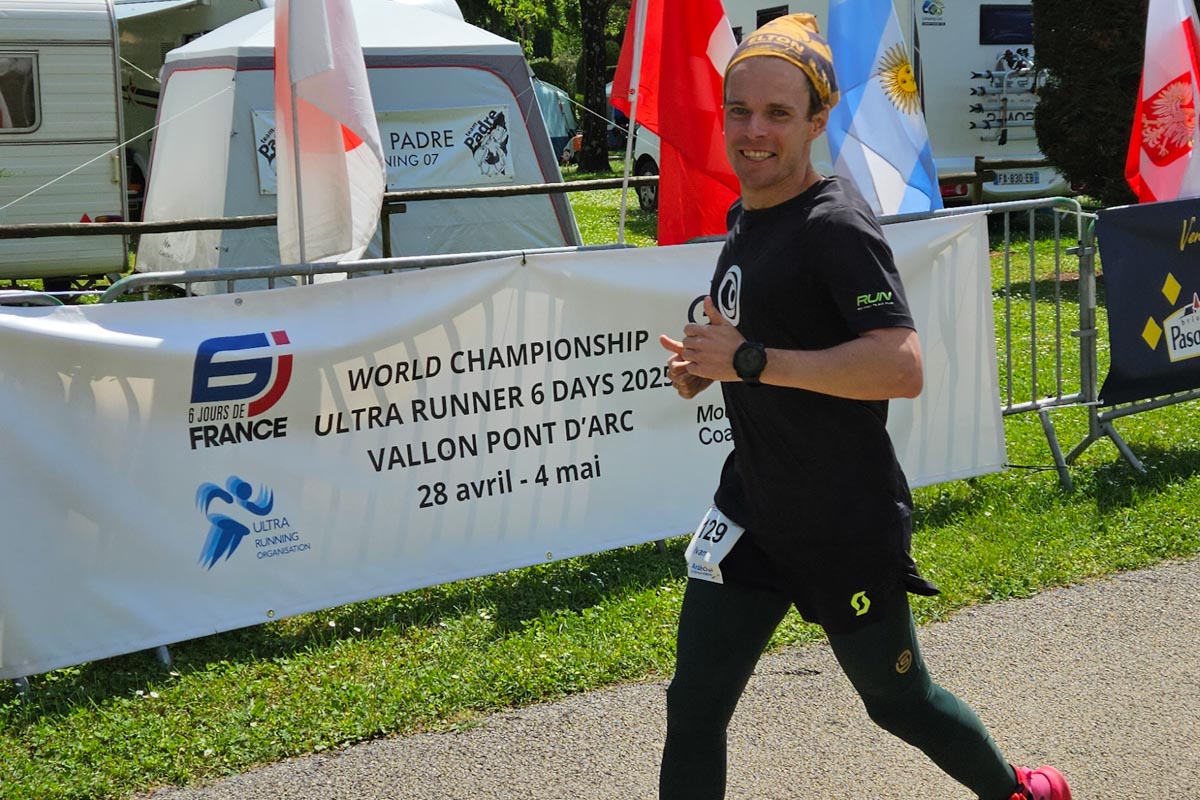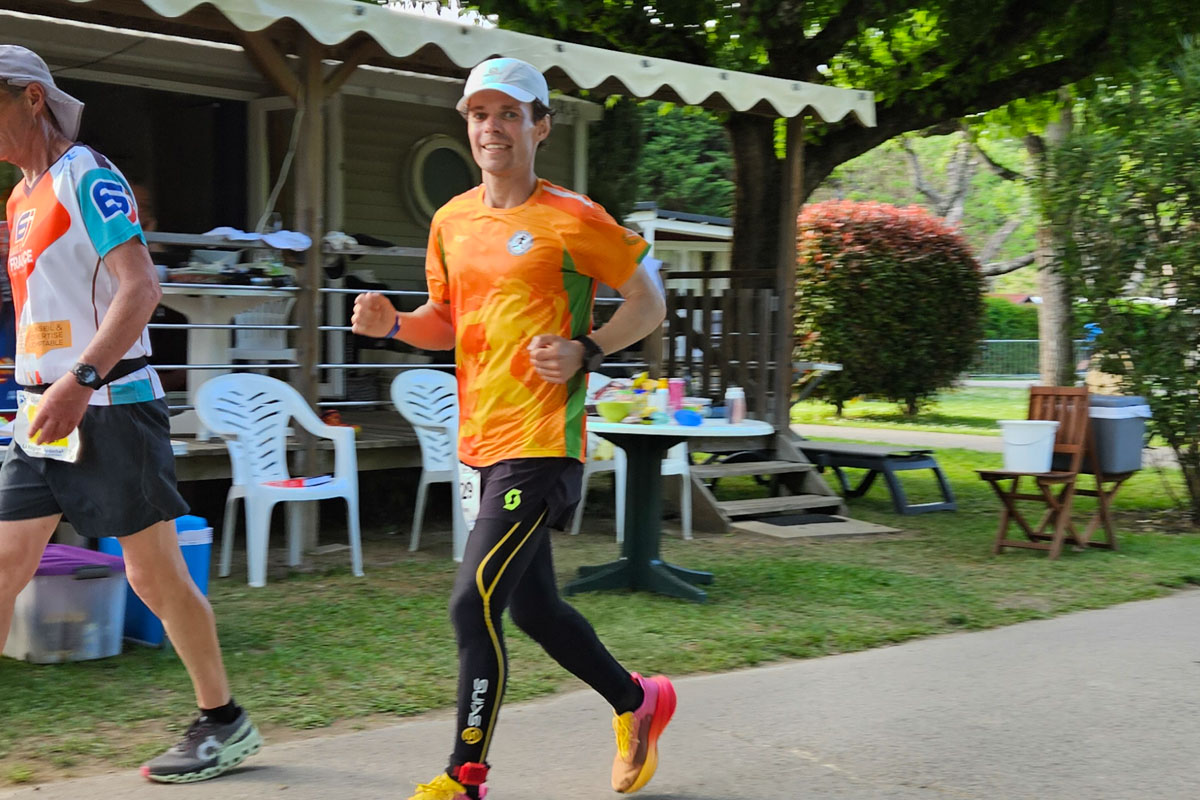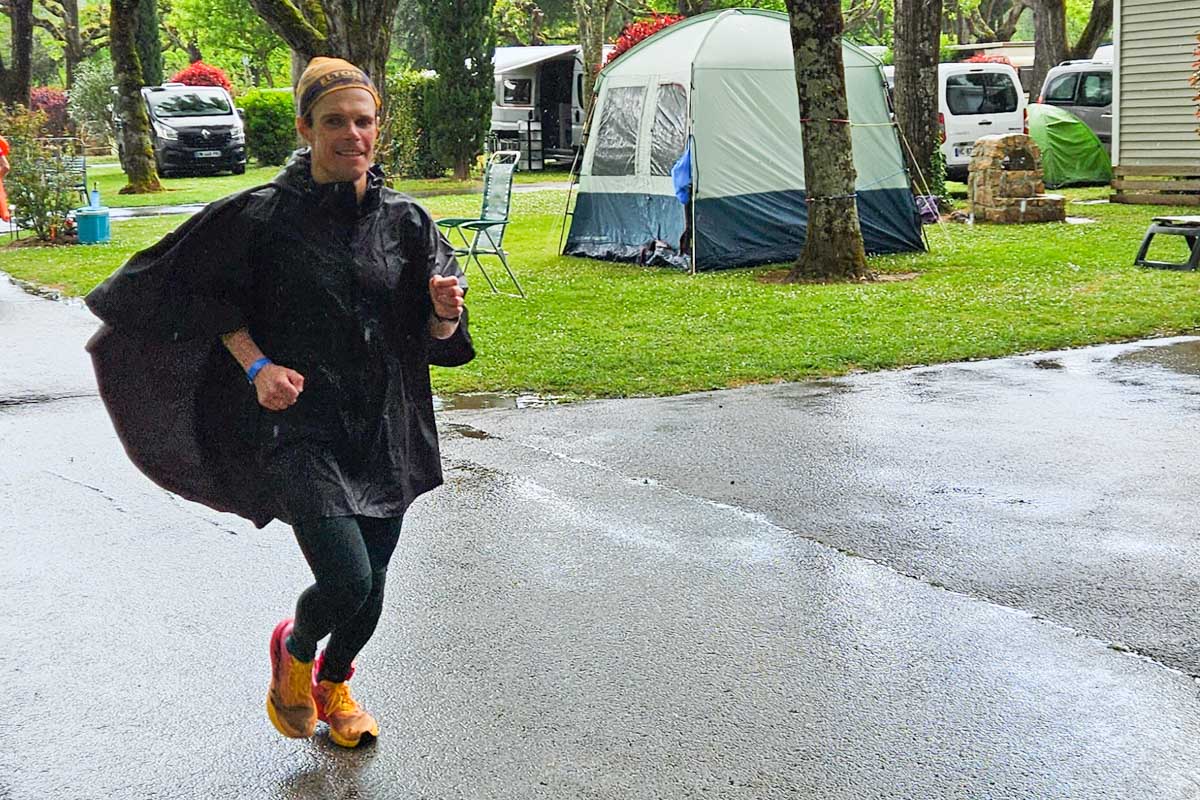In nearly all racing formats, records come down to the smallest margins, and when Ivan Zaborsky of Russia set a new men’s six-day world record, it was by a distance that could have been erased by a single push of a snooze button on an alarm clock. After 144 hours of racing at the Six Days of France in Vallon Pont d’Arc, he stopped at noon on May 4, having completed 650.919 miles (1,047.554 kilometers).
This broke Matthieu Bonne’s 2024 record of 649.655 miles (1,045.519 kilometers) by 1.26 miles (2.03 kilometers). To put that in perspective, it means that Zaborsky ran 0.00875 miles per hour faster than Bonne over the course of the event, the smallest of margins. His pacing over the course of six days saw him traveling just ahead of world record pace for the first five days and then making big push in the final 24 hours to set a new standard.
Zaborsky is no stranger to multiday races, as he prefers to run long rather than fast. He holds several long-distance records, including the 304-mile (490-kilometer) Authentic Phidippides Run, which travels from Athens to Sparta in Greece and back again.
In this interview a few days after the race, Zaborsky offers a bit of background on himself, explains his pathway to long-distance racing, how the postponement of the three-day world championships resulted in him signing up for this six-day event, his pacing plan, and how the final hours of constant rain foiled his plans to run even farther.
To read more about Zaborsky’s world record, you can check out our news article about the event. Be sure to also see our interview with Megan Eckert, who set a women’s six-day world record at the same event.

Ivan Zaborsky on his way to setting a new men’s six-day world record at the 2025 Six Days of France race. All photos courtesy of Ivan Zaborsky.
[Editor’s Note: This interview has been lightly edited for clarity.]
iRunFar: Let’s start with a little bit of background about you. Where did you grow up, and where do you live now? How did you initially get into the sport, and what do you do outside of running?
Ivan Zaborsky: I was born, raised, and now live in Moscow. I am the head of the Corporate Finance department at Fix Price, an international chain of fixed-price stores. That is, I work five days a week from 9 a.m. to 6 p.m. At first, I ran with my father and brother while I was in school. In 2015, I ran my first 24-hour race, and the next one was my first Spartathlon. That’s how my ultramarathon journey began.
iRunFar: It seems like you have a fair bit of experience with multiday racing, including the 2024 GOMU 48-Hour World Championships and St. Petersburg Backyard Ultra. When did you first start participating in these very long lap races, and why?
Zaborsky: My first 24-hour race was in 2015 in Moscow. After it, I participated in many races: Spartathlon (four-time finisher), Ultrabalaton, Ultra Milano San-Remo (current course record holder). I had my best result at a 24-hour race in Russia: 284.913 kilometers. Last year, I set a new record at the Authentic Phidippides Run of 52 hours and 52 minutes. I don’t like to run fast, so my idea is that the longer the distance, the better the result I have on it. That’s the reason I came into multiday running. It’s a very interesting field where you have great possibilities for different strategies!
iRunFar: When and why did you decide to try for the six-day world record?
Zaborsky: I decided to take part in the six-day world championships after winning the Phidippides Run in Greece in November of 2024. The reason is that the three-day world championships was postponed to 2026, so I decided to try the six-day world championships. I expected a unique experience.
iRunFar: How do you prepare physically and mentally for these types of efforts? What does your weekly training look like?
Zaborsky: I started to run more than usual. From March 21 until April 20, my running volume was 1,315 kilometers. I included interval running and hill running in my weekly workouts. Mentally, I am prepared for every competition. It’s not a problem.
iRunFar: Who did you have with you as your crew for the Six Days of France event? Have they crewed for you before?
Zaborsky: My crew was my wife. She helped me before in 24-hour races.
iRunFar: It seems like you based your pacing plan very closely on Matthieu Bonne’s pacing, right down to the bigger breaks you took. If this was intentional, what was the reasoning behind it?
Zaborsky: No, I didn’t try to copy his pacing plan. I just ran at a comfortable pace except for the last day, when I ran more to set a new record. I had big breaks during the hottest hours of the day, and one or two small breaks at night.
iRunFar: Were you basing your pace more on how you felt or on trying to hit a specific time for every lap?
Zaborsky: I based my pace only on how I felt and tried not to run fast.
iRunFar: Did you experience many low and high points, or did you feel like you were able to maintain steady emotional and physical states throughout the event?
Zaborsky: I didn’t have many low and high points. It was difficult some nights, especially in the early morning hours. But nothing critical.
iRunFar: You were ahead of Bonne’s pace until you took one more longer sleep than he did near the end. With a day left to run, were you ever worried that you wouldn’t be able to get ahead of his pace again?
Zaborsky: No. I was sure that on day six, I will go ahead. But heavy rain spoiled my plan a bit.
iRunFar: How did that final longer sleep affect your final day of racing? Was that sleep always part of the plan? How hard did you have to push in the final hours to make sure that you would get the world record?
Zaborsky: It gave me additional time to rest during hottest hours, so l had power to run without big breaks the last day. The final hours were rather difficult and long because of constant rain.
iRunFar: Was there ever a point where you were confident that you would get the record as long as something catastrophic didn’t happen?
Zaborsky: I think it was on day six. I clearly understood that if I didn’t get injured, I would get a record.


